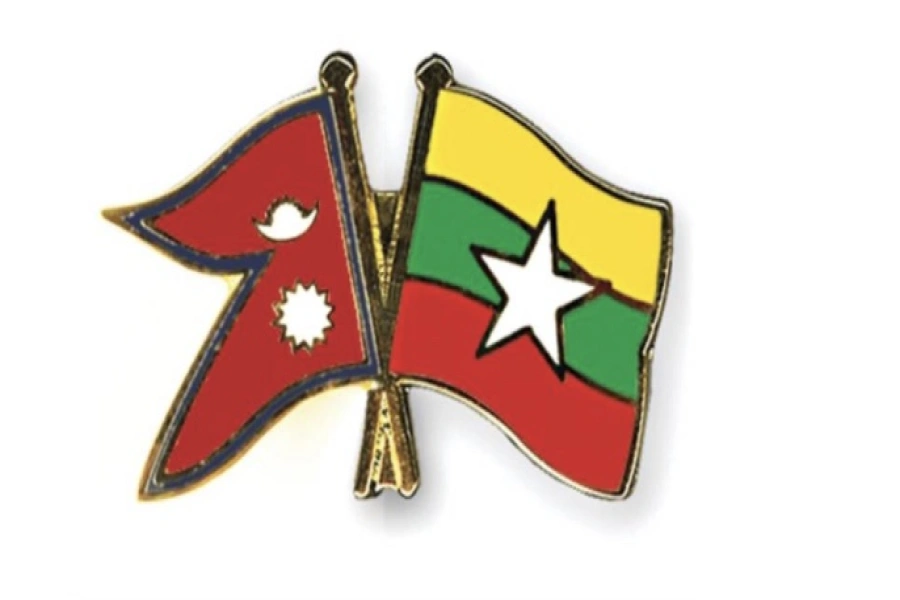Chinese Ambassador to Nepal, Chen Song, has been making headlines in Nepal over the past few days. On September 2, the envoy reportedly stated, “India’s policy towards Nepal and other neighbors is not friendly and not beneficial to Nepal. So, we call that policy of constraints.” This controversial statement by the Chinese Ambassador in Kathmandu regarding Nepal-India relations has received widespread criticisms for being undiplomatic. While the statement is undiplomatic, it is also misleading and, therefore, uncalled for.
Increasing Chinese Interventions: Is there a Policy Change?
Since the establishment of their diplomatic ties, China adopted a pro-establishment policy towards Nepal, which means that China would engage with whichever government was in power and would not interfere in Nepal’s internal affairs. However, in recent times, it seems that this policy has changed. There are media reports that suggest China played a role in 2018 in bringing together the two major left forces in Nepal: the Pushpa Kamal Dahal-led Communist Party of Nepal- Maoist Centre (CPN-Maoist Center) and the KP Sharma Oli-led Communist Party of Nepal- Unified Marxist-Leninist (CPN-UML), leading to the formation of the Nepal Communist Party (NCP). This became evident when the then Chinese Ambassador Hou Yanqi suddenly increased her meetings with the then President of Nepal, Bidya Devi Bhandari, Pushpa Kamal Dahal, and KP Sharma Oli in 2021 to patch up their differences and save the NCP from splitting.
Initially, the relationship was primarily limited to “Trade and Investment,” but it was later upgraded to include “Defense Cooperation and Political Advice.” Through its “Trade and Investment” policies, China has engaged with countries around the world, including its adversaries and competitors like the US, Japan, South Korea, India, and Australia. However, since the inception of the NCP, China has intensified its policy of ‘Defense Cooperation and Political Advice’ in Nepal. In 2017, both countries hosted the first-ever joint military drill, ‘Sagarmatha Friendship,’ in Kathmandu, followed by the second in Chengdu in 2018. In October 2018, the then Deputy Prime Minister and Defense Minister Ishwor Pokhrel signed an agreement in which China pledged to increase its military support to Nepal by 50 percent. Besides financial assistance, the People’s Liberation Army (PLA) has also increased the number of war college seats and National Defense Course quotas for Nepalese Army officers. In 2023, both countries agreed to resume military engagement that had stalled due to the COVID-19 pandemic. Recent engagement between the two countries suggests that China is poised to surpass Nepal’s traditional defense partners – India and the US.
Tibet to deepen ties with South Asian countries including Nepal...

Similarly, in recent years, China has intensified its engagement with the major political parties of Nepal, primarily the CPN (Maoist Center) and CPN-UML. In September 2019, the Nepal Communist Party (NCP) and the Communist Party of China (CPC) jointly organized a symposium on “Xi Jinping Thought'' in Kathmandu. NCP and CPC also signed a six-point memorandum of understanding (MoU) for the exchange of party-to-party experiences, youth and local leader visits, and annual ideological interactions. In June 2020, during a violent clash at the India-China border in Ladakh, NCP’s School Department, led by Ishwar Pokharel, organized a virtual meeting with CPC. There were a series of such exchanges, including a virtual meeting with the Chairman of the Standing Committee of the National People’s Congress of China and the Speaker of the House of Representatives of Nepal in April 2022. Most recently, China has been accused of supporting protests in Nepal against the US grant project, the Millennium Challenge Corporation (MCC), which came at the request of the Nepali government.
Flaws and Fallacies in Song's Remark: Not the First Time
The statement made by the Chinese Ambassador, Chen, regarding Nepal's foreign policy and its trade relations with India, violates diplomatic norms. The International Relations and Tourism Committee, under the House of Representatives, summoned Nepal’s Foreign Minister NP Saud to discuss the controversy sparked by Chen’s undiplomatic remarks. Ambassador Chen also made such controversial remarks in the past, stating that Pokhara International Airport and Gautam Buddha International Airport are part of the Belt and Road Initiative (BRI) Project, and the Pokhara Dragon Boat Festival is part of the Global Civilization Initiative (GCI), despite the Nepalese government rejecting such claims.
Chen’s statement is equally misleading. Nepal and India enjoy excellent relations, often referred to as 'special relations,' with free movement of people across the border, shared culture and religion, common cross-border marriages, the Chief of Army Staff (CoAS) of Nepalese Army serving as an honorary COAS of the Indian Army and vice versa, their currencies pegged together, and India playing a major role in Nepal's democratization. India was the first country to send relief materials during the devastating earthquake of 2015, highlighting the unmatched nature of Nepal-India relations. Ambassador Chen compared the power trade figures between Nepal and India over the last year and concluded that Nepal would incur losses by engaging with India in the power sector. However, the fact is that during the dry season, when power production decreases and demand increases, leading to higher power prices, Nepal faces power shortages and imports electricity from India. Nepal can achieve a significant surplus only when it meets its domestic needs, even during the dry season. Fortunately, we will be able to reach that position within a year. Therefore, it is premature for Chen to draw such conclusions.
Recently, both India and Nepal have made significant progress in the hydropower sector. For instance, just a few days ago, the Indian cabinet approved a long-term power trade agreement aiming to purchase 10,000 MW of power from Nepal in the next ten years. Progress is rapidly being made on the 900 MW Arun III Hydropower Project, and the development of the 669 MW Lower Arun project is also underway. During Prime Minister Dahal's visit to India this year, both countries signed an MoU for the development of the 480 MW Phukot-Karnali Hydropower project and the 400 KV Gorakhpur-Butwal transmission line, which will facilitate cross-border power trade. Similarly, projects like the Bheri Corridor, Nijgadh-Inaruwa, and Gandak-Nepalgunj transmission lines are being implemented. Moreover, India, Nepal, and Bangladesh are collaborating to facilitate the first trilateral power transaction from Nepal to Bangladesh through the Indian Grid. These initiatives are poised to be game-changers for Nepal's economy and will serve as a model for inter-regional cooperation in the power trade sector in South Asia.
In contrast, China has failed to harness Nepal's hydropower sector over the past six decades, rendering Chen’s statement misleading. Although China ranks as the world's second-largest economy, India remains the largest provider of Foreign Direct Investment (FDI) to Nepal. While India has already completed the first phase of a cross-border railway line, which is operational from Jayanagar to Kurtha, China's railway plans in Nepal are still on papers. Moreover, Nepal holds a crucial position in India's neighborhood policy, whereas it has struggled to garner sufficient attention in China's foreign policy.
Impact on Nepal-China Ties
The undiplomatic statements by the Chinese diplomats will have a negative impact on bilateral relations. China should have learned from India's past experiences, where they faced strong resistance in Kathmandu due to their micromanagement of Nepal's internal affairs. While India was often criticized, China was perceived as a benign neighbor. However, the current Chinese activities in Nepal indicate a policy change in the wrong direction.
Although China can never match India's influence in Nepal due to geographical constraints, there is still a lot they can offer. Similar to the past, China can focus on Nepal's connectivity projects, which can accelerate Nepal's economic development. Beijing has the potential to become the largest provider of foreign direct investment (FDI) and compete with other countries in the hydropower sector. They also need to control the increasing number of criminal activities by Chinese nationals in Nepal, which is damaging their image.
It is advisable for Ambassador Chen to remember how Acting Deputy Assistant Secretary for South Asia at the US Department of State, David J. Ranz made controversial remarks during his visit to Kathmandu in May 2019, which posed significant challenges to the MCC in Nepal. Chen’s controversial remarks on the Belt and Road Initiative (BRI) can also determine the future of BRI in Nepal. While this specific incident, which revolves around controversial statements regarding a friendly neighbor of the host country, offers a valuable lesson, it is the responsibility of the government to implement necessary measures to ensure that diplomats in Kathmandu abstain from making remarks that could jeopardize Nepal's relationships with its friendly nations.








































